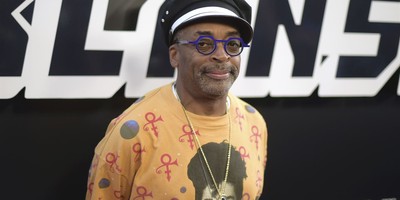In the upcoming film REAGAN, I play James Baker, the president’s chief of staff. It’s a fascinating role — but especially for me. You see, unlike many of my fellow actors in Hollywood, I’m a conservative, and Baker was a moderate — to be honest, someone I might today call a RINO — in Ronald Reagan’s conservative administration. He was a pragmatist. He was skilled in the heavy machinery of politics. He was good at “getting things done” — but his compromises often went too far for true conservatives, who saw him undermining Reagan’s vision for America. However, President Reagan chose him as chief of staff — even though he had campaigned for Gerald Ford against Reagan in the 1976 election — because Reagan knew he was valuable. Baker understood Washington was crafty and could be ruthless when necessary. That’s what you want in a chief of staff, even if that person was not quite as committed to your policy vision as you would like. Even in his own book, Baker refrains from describing himself as a conservative but rather as a moderate and a dealmaker. His philosophy seemed to be something like: “Let’s get as far as we can. Let’s move the ball forward as much as we can to get as much of the policy that we desire. Then we take that deal, move on, and try to get more the next time.”
I happen to come from a family that was always interested in politics. My mother and father were Republicans in counties that were 7 to 2 Democrat majorities. They were always the underdogs, and as a result, I absorbed WHY they were fighting such an uphill battle, and the principles for which they were fighting. My father ran for local offices, and waged noble, sensible campaigns, and came close, against great odds — but won only one time. But the fact that he ran, even though he knew he would probably lose — it impressed me. I never forgot it. I didn’t think much about politics during my 20s and 30s, as I built my career in acting — but once my daughter was born, that changed. I started to look at the world differently. I wanted to improve her life, so I began paying more attention. In driving to auditions as a regional SAG actor in the Southeast, where you might go 400 miles to one of four states to audition on any given day, I found a man named Rush Limbaugh on the radio, who always referred to President Reagan as “RONALDUS MAGNUS.” And I began to pay attention — and learn. It’s important that we don’t cease listening and learning.
Many people in this country are unwilling to listen to someone they disagree with — and that's a serious problem. I grew up when debate was revered, when respectful arguments were encouraged, not shouted down as “microaggressions.” I did, in high school, model UN Security Council simulations where I was part of the Romanian delegation and I argued FOR COMMUNISM, because that was the assignment (and I won because I’m good at playing Democrats!). The only way to sharpen what you believe is by knowing and understanding what the other side believes. We live at a time when the concept of “free speech” is under attack. An artist should be able to express themselves without fear of being cancelled or ostracized. But Hollywood is a monolithically leftist town, and leftist thought absolutely cannot tolerate any opposition whatsoever — because their arguments are weak, their philosophy is wrong, and any rebuttal is a danger to their power. So they must stifle it. They cannot allow it to be heard, because it will make too much sense. That is why censorship is popular on the Left. They cannot bear scrutiny. I don’t want to stop anybody on the left from making films — and in fact, I have acted in some films and plays that were written by leftsists and imbued with their philosophies. That’s because I believe that artists should be allowed to tell their stories, even though I might not agree with them.
Recommended
Being challenged by them sharpens my beliefs. But they certainly do not want the same for me. They want me and everyone who thinks like me is silenced. One way or the other. And they really do not care which way. Check your local history. In Cuba, North Korea, the USSR, and so on, the opposition is ALWAYS silenced and rendered powerless, either through the fear of death — or death itself. If you won’t shut up and they can’t silence you any other way, they just murder you. Should I face discrimination in Hollywood, academia, or for that matter, any walk of life, because I have a different opinion? In keeping with the way this country was founded, of course not. This country was founded on the concept of INDIVIDUAL LIBERTY. And that is what Ronald Reagan stood for and fought for — freedom from tyranny.
But Reagan’s adversaries, then as now, held a secular, Marxist view of things. And in the Marxist vision of the world, the individual is nothing. The collective is all. Any individual who endangers the collective must be crushed, neutralized, and, most importantly, silenced. Reagan’s journey — from Democrat to Republican (yes, he started out as a Democrat, like another recent Republican President we know), from President of the Screen Actors Guild, where he battled different factions, including straight-up unabashed Communists, to becoming an effective and beloved governor of California (before California was destroyed and everyone in it moved to Tennessee) , and then becoming the most transformative president of my lifetime, “Ronaldus Magnus,” as the Great One Rush Limbaugh called him —makes for a fascinating and absorbing film. I am so proud to be part of REAGAN.
When building a team, it’s not good to have only “yes men.” It’s better to have different takes so you get more than one point of view — and if you are not a Marxist, you can tolerate some constructive criticism. That’s what Reagan had in the man I had the honor to portray, James Baker. And while I might not have agreed with Mr. Baker on everything he believed or everything he did, I know this: James Baker loved the United States of America. That differentiates him and me from many of the self-serving politicians calling themselves “public servants” today. That also makes it an honor to have portrayed him. I hope I did him justice.
Nick Searcy is a veteran film, television, and stage actor. He first gained cinematic notice for his role as Frank Bennett in “Fried Green Tomatoes.” His first regular TV series role was as Deputy Ben Healy in the 1995 show, “American Gothic,” and is perhaps best known for his portrayal of Chief Deputy Art Mullen in the iconic show “Justified.” He also appeared in “Cast Away” with that guy named Hanks. He is the author of ‘JUSTIFY THIS: A Career Without Compromise." Reagan releases in theaters nationwide on August 30th

























Join the conversation as a VIP Member